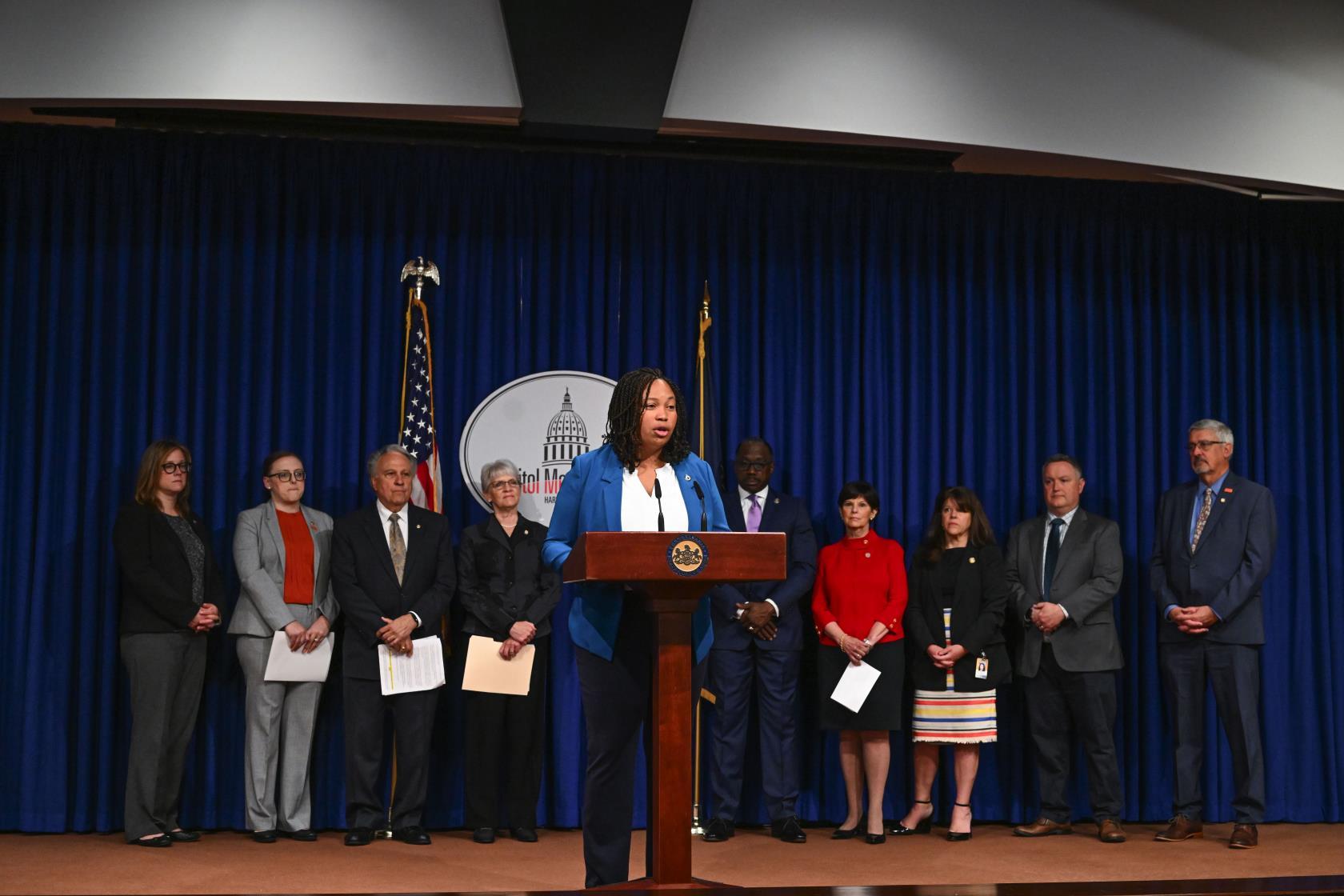Delaware County Delegation Advocates for Hospital Closure Reform in Harrisburg
Updated: June 20, 2023
Delaware County Council Chair Dr. Monica Taylor joined various elected leaders from the Commonwealth to participate in a news conference hosted by State Representatives Jennifer O’Mara and Eddie Day Pashinski, and State Senator Carolyn Comitta. The news conference, held at the Pennsylvania State Capitol highlighted House Bill 158 and Senate Bill 184, which would bring more transparency and accountability to the hospital closure process.
Pashinski’s and O’Mara’s legislation, H.B. 158, and Comitta’s S.B. 184, would double the time in which a hospital system must notify state and local agencies of a planned closure from 90 to 180 days. In addition, the legislation would establish more comprehensive standards for procedures and notification of a planned closure. It also includes requirements for an approved Closing Plan and Health Equity Impact Assessment to be submitted to the Department of Health and state attorney general. It also calls for increased community input, data collection, public comment, and public hearings prior to closure.
“Springfield Hospital’s Emergency Room closed over a year ago, and the building remains vacant. The nearest ER for Springfield residents is 15 minutes away. What used to be a 5-minute drive has now increased three-fold after our local hospital closed down,” O’Mara said. “This is unacceptable because minutes matter in a life-or-death situation. Our state law needs to ensure this isn’t the norm for every closure and that communities have the time they need to thoroughly prepare new care options.”
Last September, Crozer Health publicly announced its reorganization plan- redefining its healthcare services to the Delaware County community. Since that announcement, they have closed critical and vital healthcare services including the emergency department at Springfield Hospital and services at Delaware County Memorial Hospital including the emergency department and birthing center, and other vital services.
“This has left a major void in the healthcare needs of residents, especially in the eastern section of our County,” said Delaware County Council Chair Dr. Monica Taylor. “Residents in the Drexel Hill and Upper Darby communities, which is the most heavily populated section of our county, no longer have a local ER or Birthing Center. Some of our residents can’t just hop in their car and travel miles to another hospital. Many rely on public transportation. There are also language barriers for residents in that diverse section of our community and some are low-income families. These challenges create immense barriers to some of our residents trying to access vital healthcare.”
The Emergency Room closures also continue to impact EMS in Delaware County. There are now further transport times to distant hospitals- now averaging 30 minutes. ER wait times for EMS to transfer patients to staff has doubled from 30 minutes to 60 minutes. There has also been an increase in EMS being sent to non-emergency incidents due to the Emergency Department being closed, which creates a delay in EMS being available for emergency services to the community. There are also strains on nearby hospitals that are now taking patients who would have normally gone to their local hospital.
Currently, hospitals are only required to provide 90 days’ notice before their closure. House Bill 158 would extend that date to 180 days. The bill would also require hospitals to have an approved closure plan and conduct a Health Equity Assessment prior to closing.
In April 2022, Delaware County Council passed an emergency ordinance requiring 180-day notice to the County of a decision to close either all or most of the units of a hospital or certain “significant impact units” such as emergency departments, ambulance services, labor and delivery units, or behavioral health departments. In addition, a closure plan is required to be submitted to the Delaware County Health Department no later than 120 days from the anticipated date of closure.
House Bill 158 requires a 180-day notice and requires a hospital to conduct a health equity assessment to determine the estimated number of patients affected, the estimated number of low-income, senior, minority and Medicare and MA patients impacted, the names and addresses of the three nearest hospitals that provide comparable services, a summary of public transit options including estimated drive times, the estimated fiscal impact a closure would have on the affected community, and other valuable data.
